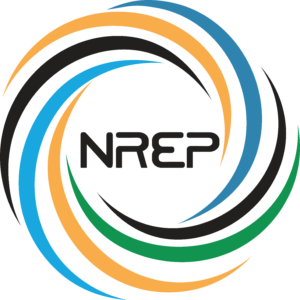Every day in Moroto, countless families cook over open fires that fill homes with thick smoke, silently endangering lives. Women and children, who spend the most time around the fire, bear the heaviest burden of respiratory diseases and long hours lost collecting firewood. On 13th August 2025, this reality took center stage as the National Renewable Energy Platform (NREP), in partnership with the Uganda National Alliance on Clean Cooking (UNACC), the Ministry of Energy and Mineral Development (MEMD), and UK Aid through the Modern Energy Cooking Services (MECS) programme, launched a week-long campaign at Moroto Main Market. The initiative brought clean cooking solutions to the heart of Karamoja, combining dialogue, demonstration and collective action.
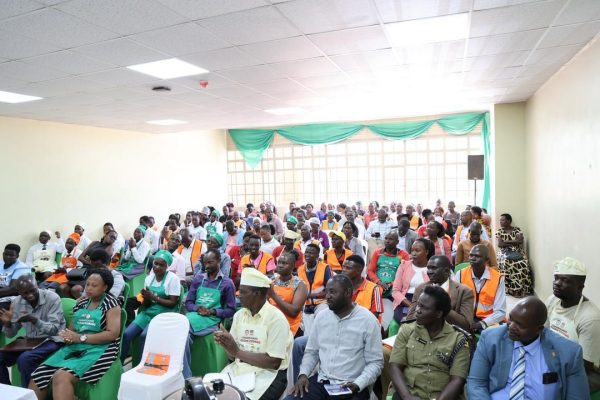
Key Highlights and Observations
The campaign opened with a one-day workshop attended by 137 stakeholders, including local leaders, security officials, community representatives, business owners, teachers and students. Over six subsequent days, the exhibition led by the Uganda National Alliance on Clean Cooking (UNACC) showcased clean cooking technologies ranging from electric pressure cookers (EPCs) to modern biomass alternatives. Participants not only listened but also tasted the future of cooking.
Leadership voices set the tone.
- RDC Mark Awori Musoka recalled how once-dense thickets in Naminam and Nakapelimen Ward disappeared in the late 1970s due to unsustainable firewood harvesting. He warned that the loss of indigenous species like acacia and tamarind threatens biodiversity and accelerates climate change. His call was clear: residents must become ambassadors of clean cooking and stewards of environmental restoration.
- Deputy Town Clerk Longolio John emphasized the gender imbalance, noting that women spend long hours collecting firewood. He described this as a societal failure to value women’s time and contributions, stressing that clean cooking is not just a health or environmental issue but rather a gender equity issue.
- Mayor Mohammed Ismail hailed the initiative as transformative. He argued that clean cooking solutions not only save lives but also reduce household energy costs, urging residents to translate awareness into practical adoption.
Community engagement was central.
For many participants, it was their first time encountering EPC technology. The excitement was palpable as beef, beans, rice and kalo were cooked quickly, efficiently and without smoke. Dr. Lily Achayo, who has used EPCs for years, shared her personal experience: “By 11:00 a.m., lunch is ready, giving me more time to attend to my children. Clean cooking has transformed my home and freed my time.” Her story highlighted how technology can redefine the daily lives of working mothers.
By the close of the workshop, 98 participants pledged to become clean cooking ambassadors. Exhibition stalls allowed residents to interact with technologies, ask practical questions and see first-hand how clean cooking could fit into their households.
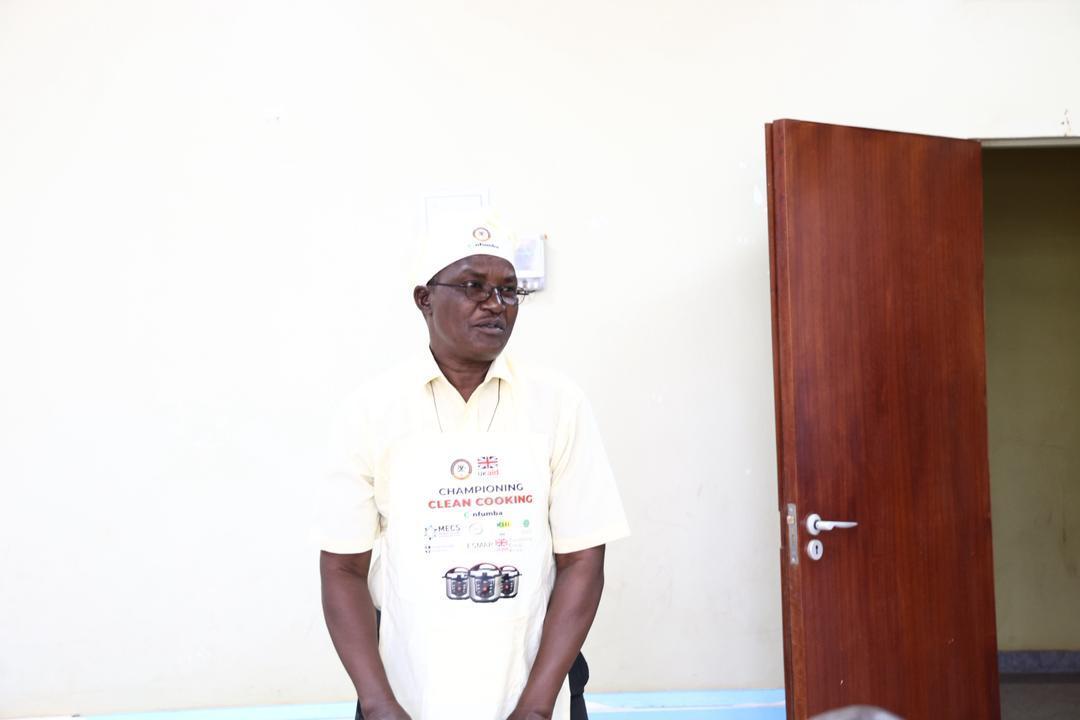
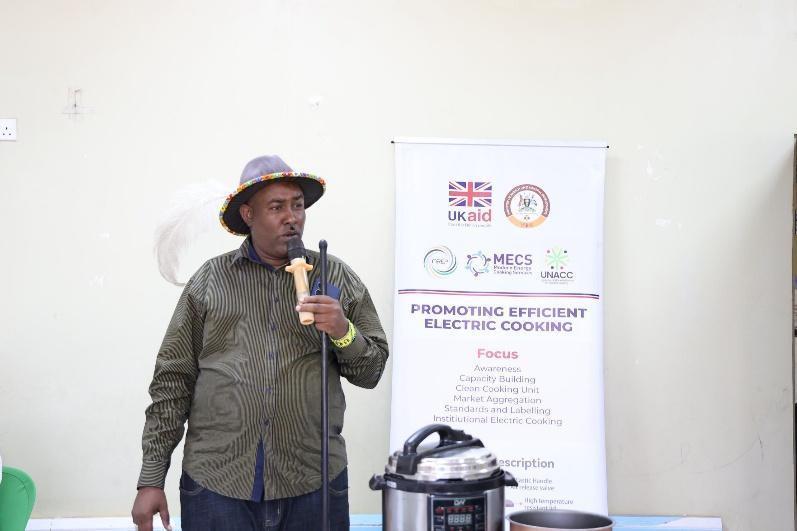
RDC Mark Musoka and the Mayor Mohammed Ismail delivering their speeches during the event
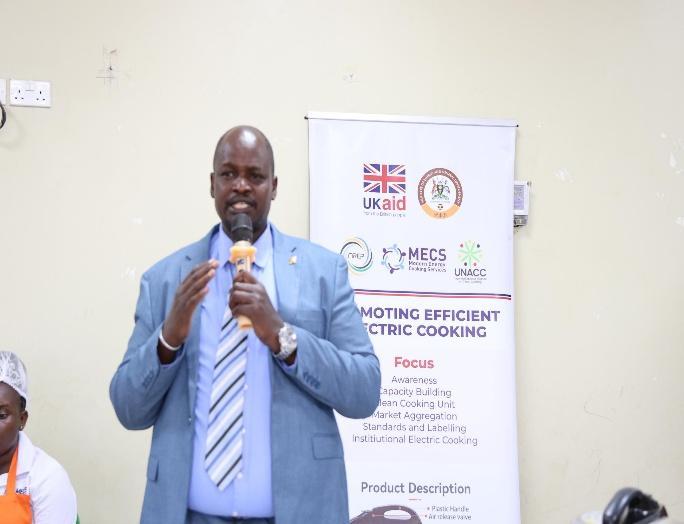
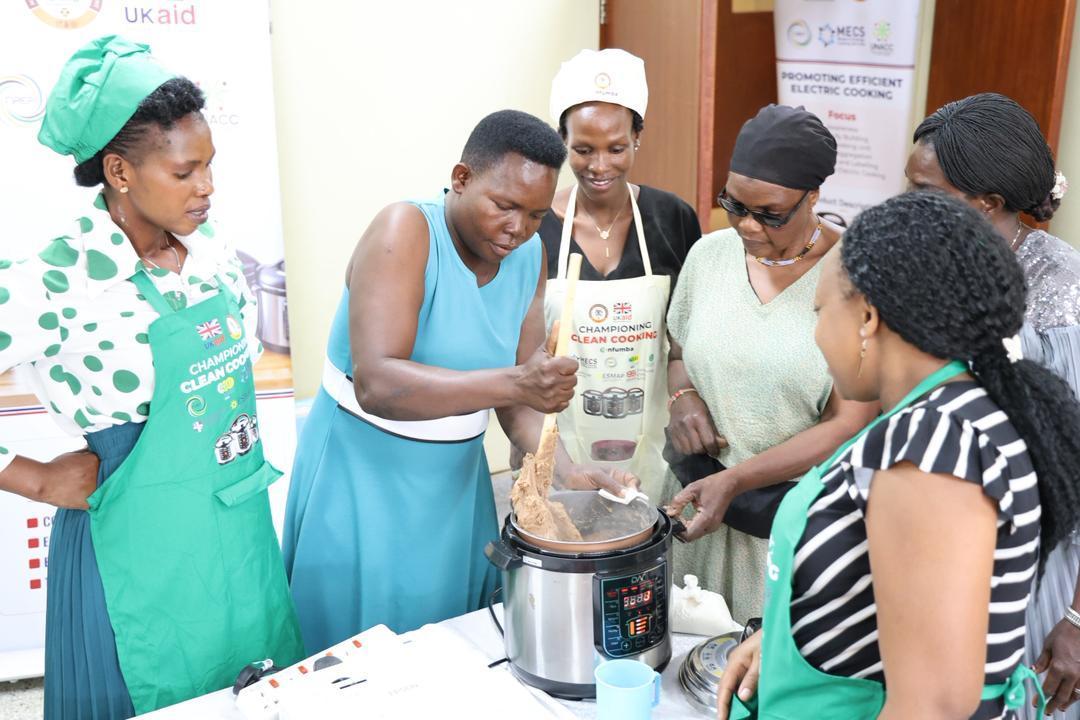
The deputy Town Clerk delivering a speech during the event and Participants preparing Kalo in an EPC
Key Challenges & Lessons Learned
Despite the enthusiasm, several obstacles remain:
- Electricity reliability: Frequent outages in Karamoja raise doubts about depending solely on electric cooking.
- Affordability: Many households cannot meet the high upfront costs of EPCs and related appliances.
- Accessibility: Limited distribution channels and weak financing mechanisms keep technologies out of reach.
- Cultural adoption: Some expressed skepticism about whether EPCs could prepare traditional meals to the desired taste.
These challenges underscored the need for a multi-pronged approach that includes policy, financing and awareness campaigns tailored to the local context.
Pathways to Solutions
Participants and leaders identified interventions to accelerate uptake:
- Affordable financing models: Subsidies, microloans and pay-as-you-go systems can make clean technologies accessible across income levels.
- Expanded awareness: Campaigns in local languages via radio, schools and community gatherings will deepen understanding.
- Partnerships: Collaboration with local governments, NGOs and financial institutions is crucial for scaling adoption.
- Infrastructure investment: Reliable electricity supply must complement clean cooking efforts to ensure sustainability.
- Cultural integration: Demonstrations that adapt EPC use to local cuisines can increase acceptance and trust.
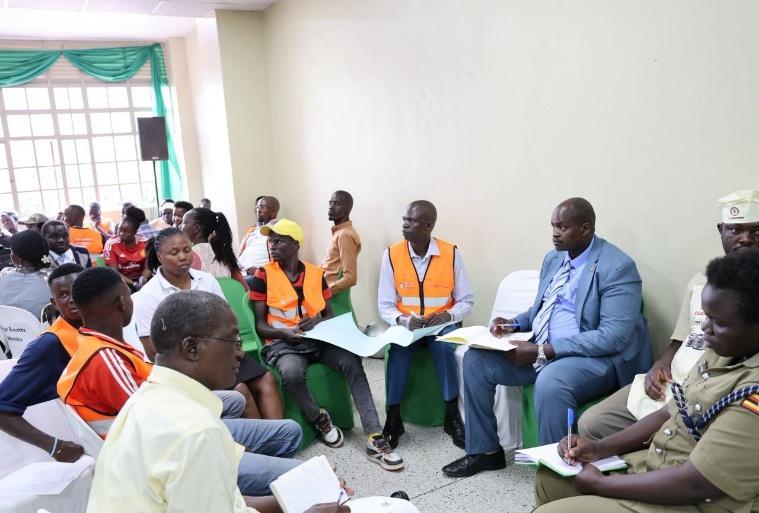
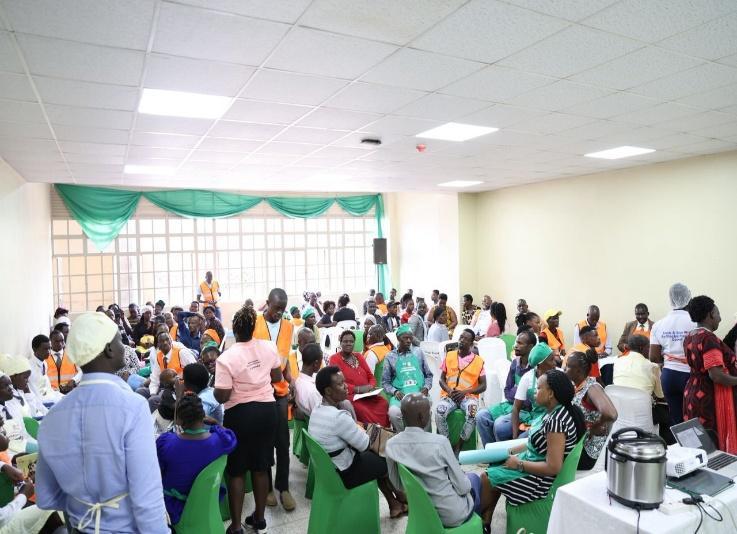
Leaders in group discussions lying strategies to improve access to clean cooking technologies in Karamoja.
Conclusion & Next Steps
The Moroto campaign revealed both a hunger for change and the hurdles that must be overcome. It showed that communities are ready to embrace modern cooking solutions when given the chance to experience them. The pledges by 98 ambassadors mark a significant step, but the road ahead requires sustained investment and advocacy.
NREP and its partners are committed to:
- Supporting ambassadors to extend outreach beyond urban centers.
- Scaling demonstrations to rural communities most affected by fuel scarcity.
- Engaging policymakers to design supportive subsidies and infrastructure improvements.
Moroto stands at a crossroads. The choice is stark: continue down a smoky path that endangers health and forests or step boldly into a future where every home cooks safely, sustainably and with dignity. Clean cooking is not merely an option, it is a necessity for survival, progress and equity. The campaign has lit a spark; it is now up to leaders, households and partners to fan it into lasting change.


